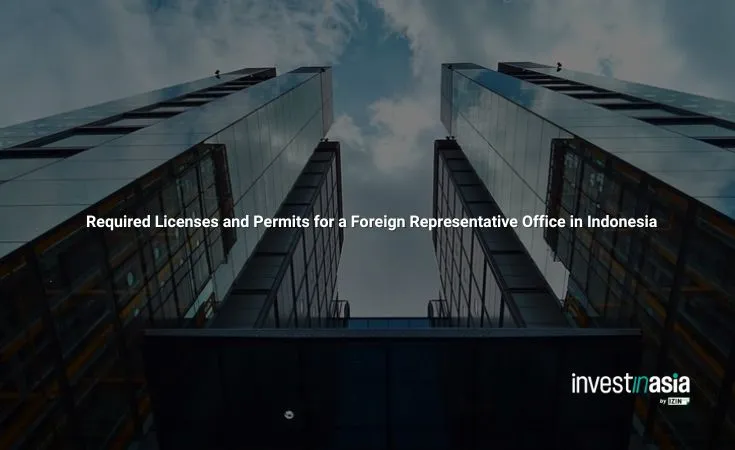Foreign companies aiming to enter Indonesia often start with a representative office. It’s a smart, low-risk way to assess the local market. But to legally establish one, companies must navigate specific licensing and regulatory requirements under Indonesian law.
This article covers everything you need to know—from key permits to legal frameworks and strategic benefits—so your business can confidently take its first steps into Southeast Asia’s largest economy.
Also read: How to Start a Business Presence in Indonesia Without Incorporation
Understanding the Licensing Landscape in Indonesia


Setting up a foreign representative office, referred to locally as Kantor Perwakilan Perusahaan Asing (KPPA), involves a structured regulatory process in Indonesia. These offices are not allowed to engage in commercial activities and primarily function for networking, market analysis, and supporting business growth. They serve as a first step for foreign firms exploring Indonesia without forming a full-blown company.
These offices cannot directly generate revenue or engage in sales. Instead, they are vehicles for connection, coordination, and information gathering.
Legal Framework: What Governs the Setup?
The permit process is governed by Regulation No. 4 of 2021 from the Investment Coordinating Board (BKPM), which applies a risk-based licensing system through the Online Single Submission (OSS) platform. BKPM (now under the Ministry of Investment) oversees these processes.
Representative offices are considered low-risk and thus benefit from streamlined procedures. The OSS system allows companies to submit and track applications entirely online, cutting red tape and reducing waiting time.
Also read: The Types of Representative Offices in Indonesia
Key Licensing and Permit Requirements
The core licensing step involves applying via oss.go.id, selecting the correct representative office category (e.g., foreign trading, construction, power services), and uploading required information about the parent company.
You will need:
- Articles of Association (certified and translated)
- Letter of Appointment (acknowledged by KBRI, IIPC, or Trade Attaché)
- Letter of Intent (business purpose)
- Proof of operational legitimacy in the home country
- Statement from the appointed representative (exclusive dedication to the office)
Upon approval, you receive an OSS-issued permit valid for the duration of the office’s operation—pending compliance.
Documentation Checklist


You’ll need:
- Parent company’s articles of association (translated and notarized)
- Copy of business license from home country
- Letter of Appointment (acknowledged by KBRI)
- Letter of Intent
- Letter of Statement by appointed representative
- Proof of office address in Indonesia
Also read: Representative Office vs Branch: What’s the Difference?
Operational Limitations
There are firm restrictions:
- No sales or revenue-generating activity
- No signing of commercial contracts
- Cannot manage or control local branches or subsidiaries
- The representative head must reside in Indonesia
- Foreign staff must be balanced by hiring local employees
Also read: The Limitations of Representative Office in Indonesia
Compliance and Reporting
Twice a year, offices must file activity reports (January 10 and July 10) to BKPM. These updates ensure regulatory alignment and continued permit validity.
Why Choose a Representative Office?
Even with these limitations, representative offices offer compelling advantages:
- 100% foreign ownership allowed
- No capital requirement
- Ideal for market entry, research, and local relationship-building
- Acts as a strategic hub for broader regional expansion
Representative offices allow companies to “test the waters” before diving into full-scale investment or forming a PT PMA (foreign investment company).
Also read: Representative Office vs. PT PMA in Indonesia: Key Differences for Foreign Investors
Streamline the Setup with InvestinAsia
Navigating the regulatory system can be overwhelming. That’s where InvestinAsia comes in. With deep expertise in Indonesian investment law, our Indonesia Representative Office Setup Service ensures your permits are filed correctly and quickly.
From preparing documents to liaising with Indonesian embassies, InvestinAsia handles it all—letting you focus on your market strategy, not paperwork.
Ready to establish your Indonesian presence the right way?
Start with a FREE consultation and set up your representative office with confidence.
Frequently Asked Questions (FAQ)
What is a foreign representative office in Indonesia?
A foreign representative office (KPPA) is a liaison entity established by foreign companies to conduct market research, coordination, and business development in Indonesia.
Can a KPPA generate revenue in Indonesia?
No. Representative offices are strictly non-commercial and cannot engage in direct sales or contractual business.
What is the estimated timeframe for obtaining a KPPA license?
With complete documentation, the OSS system can process permits within a few working days.
Is there a capital requirement?
No capital injection is required to establish a KPPA.
Can a foreigner be the head of the office?
Yes, but they must reside in Indonesia and work exclusively for the office.




